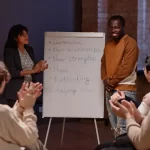Elevate Your Social Skills: Timeless Tips for Success
In both personal and professional life, superior social skills can create opportunities and build strong connections. The ability to interact effectively with others is more than a bonus; it can significantly affect your success. Fortunately, history offers us many practical tips to improve social skills. Here’s a comprehensive guide featuring reliable advice derived from centuries of human interaction.
Understanding the Importance of Social Skills
Strong social skills help in numerous ways:
- Build Relationships: Good social skills help you form friendships and build networks.
- Advance Your Career: Many jobs require teamwork and communication. Strong social skills can give you an edge.
- Enhance Confidence: Improved social skills can increase your self-esteem.
Recognizing these benefits is the first step to taking action. So how can you improve these vital skills? Let’s explore some practical tips that stand the test of time.
Timeless Tips to Improve Social Skills
1. Be a Good Listener
Listening is a vital part of communication. Be present in conversations. Show genuine interest in what others say. Tips for becoming a better listener include:
- Maintain eye contact.
- Encourage the speaker with nodding or brief verbal affirmations.
- Avoid interrupting or planning your response while the other person speaks.
Truly listening can create trust and promote more meaningful dialogues.
2. Practice Empathy
Understanding others’ feelings can greatly improve your interactions. Empathy allows you to connect on a deeper level. Here’s how to practice it:
- Put yourself in others’ shoes.
- Ask open-ended questions to understand their perspective.
When people feel understood, they are more likely to open up and share.
3. Master Non-Verbal Communication
Your body language can say more than your words. Pay attention to:
- Posture: Stand or sit up straight to convey confidence.
- Facial Expressions: Ensure your expressions match your words.
- Gestures: Use them to emphasize points but avoid overdoing it.
Strong non-verbal communication can enhance your overall message.
4. Develop Conversational Skills
Strong conversational skills are vital. Here are some methods to strengthen them:
- Start small: Engage in brief chats with strangers, like cashiers or fellow commuters.
- Practice discussions on varied topics to widen your range.
- Stay informed on current events to have something to talk about.
Conversations can help you practice your skills and build your confidence.
5. Be Authentic
People prefer genuine interactions. Show your true self rather than attempting to fit a mold. Authenticity builds trust. Here are a few tips:
- Share your personal experiences and stories.
- Be honest in your opinions.
- Avoid pretending to like something just to fit in.
Authenticity fosters deeper connections and keeps conversations interesting.
6. Join Social Groups or Clubs
Joining social groups provides practical experience in a low-pressure environment. Here’s why it can be beneficial:
- Meet people with similar interests.
- Practice social skills in a more relaxed setting.
- Gain confidence as you interact with diverse individuals.
Consider clubs related to hobbies or interests you already enjoy.
7. Ask for Feedback
Constructive feedback can help you identify areas for improvement:
- Ask trusted friends or colleagues how you can improve your social interactions.
- Encourage honest opinions so you can learn.
This input can provide valuable insights that you might not notice on your own.
8. Attend Workshops or Classes
Consider enrolling in workshops or classes aimed at enhancing social skills. These offer structured learning opportunities. Benefits may include:
- Professional trainers can provide expert guidance.
- You’ll practice in group settings.
- You’ll learn techniques to manage social anxiety.
Academic or informal settings can help reinforce what you learn.
Wrap It Up
Social skills are crucial in various aspects of life. The advice offered through centuries of human experience is invaluable. By actively working on listening, practicing empathy, and engaging in conversations, your interactions will improve. Don’t shy away from feedback, and embrace workshops to boost your capabilities.
Remember, developing social skills is a journey. Regular practice will yield positive changes, making you a more effective and engaging communicator. So step out, connect, and make the most of every conversation. After all, success often boils down to how well you interact with those around you!







